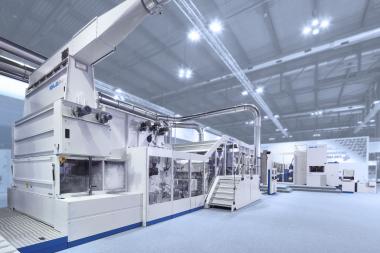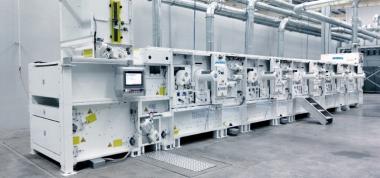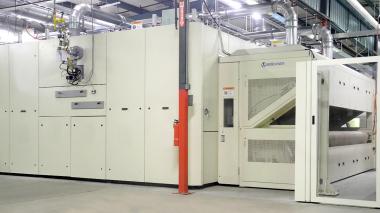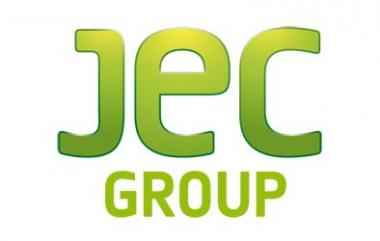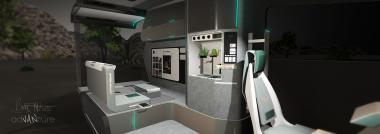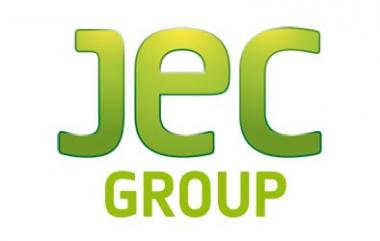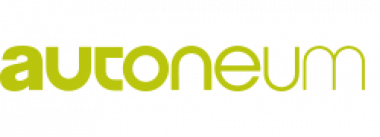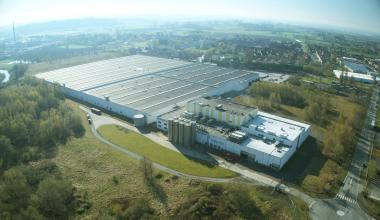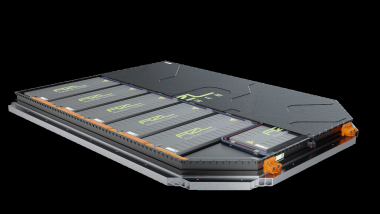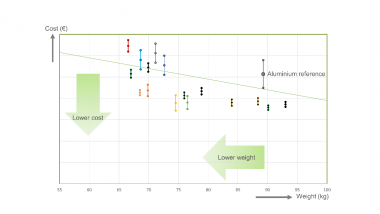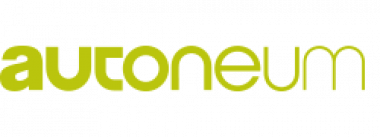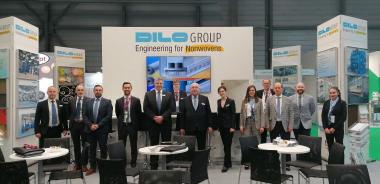DiloGroup at IDEA 2022
Dilo, a leading equipment supplier of complete lines for staple fibre nonwoven fabric production, will exhibit at IDEA 2022 in Miami, end of March.
The most recent machine concepts from DiloGroup companies DiloTemafa, DiloSpinnbau and DiloMachines will be promoted with the emphasis on new equipment components which improve product quality, increase line capacity and also enable new opportunities in nonwoven production.
DiloTemafa will promote the improved bale opener series “Baltromix Pro” with design features for the operating assistance with the I4.0 components “Bale Timer”, cleaning control, better accessibility for maintenance and the “DI-LOWATT” system for energy savings in fibre transport. The proven carding willow with modified workers and separate drives to create the prerequisites for a good fine opening will also be part of the presentation as well as the fine opening stage which may be installed over the material box of the new card feeder FRS-P to achieve a high dosing accuracy in cross and longitudinal direction.
DiloSpinnbau has a new “Unifeed” card feeder (VRS-P) which combines the principle of volumetric charged feeding with the characteristics of a chute feeder but without the conventional overhead trunk which allows for lower ceiling height requirement. The fibre flock matt is condensed by a vacuum delivery apron to give better uniformity of mass distribution. The distribution over the working width is controlled by additional flaps. This feeder can be adapted for medium/fine, coarse/medium or long staple fibres.
The “VectorQuadroCard” by DiloSpinnbau incorporates a modular transfer group between breast and main section. The quick change facility of this roller group provides different carding options. The delivery system is also flexible to provide parallel laid, random or condensed web. The preopener section on this card has 4 worker/stripper pairs with five pairs on the main cylinder. Emphasis is on high throughput with good web quality.
The revised HyperLayer NT offered by DiloMachines presents the latest state-of-the-art highspeed precision layering technique setting new standards which play an important role especially in hydroentanglement lines. In this application, it is important to achieve layering speeds up to 190 m/minute using sophisticated viscose fibres and a layering width of about 4 m while at the same time having a high layering precision in cross and longitudinal direction.
DiloMachines will also present its portfolio to improve quality and reduce costs. The FutureLine study “3D-Lofter” – first presented at ITMA 2019 in Barcelona – is part of this programme. In this study individual web forming units can deposit fibre masses on freely programmable spots in longitudinal and cross direction thus saving overall fibre mass in applications such as deep moulded parts for the automotive interior. This ability reduces costs in production and operation. The “IsoFeed” concept for a more even flock mat for direct cards and aerodynamic web forming is another interesting field of web mat quality improvement.
DiloGroup


